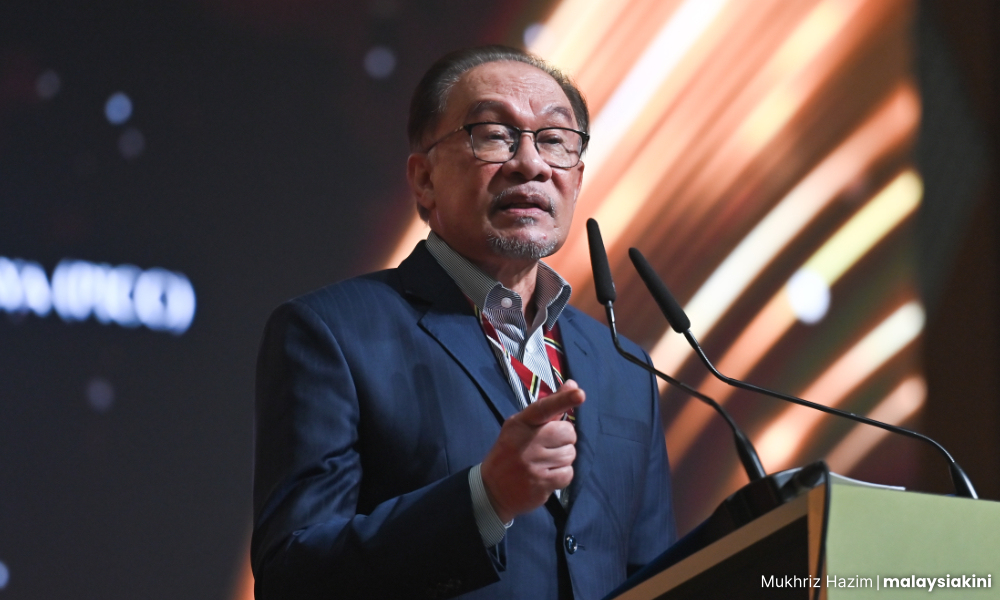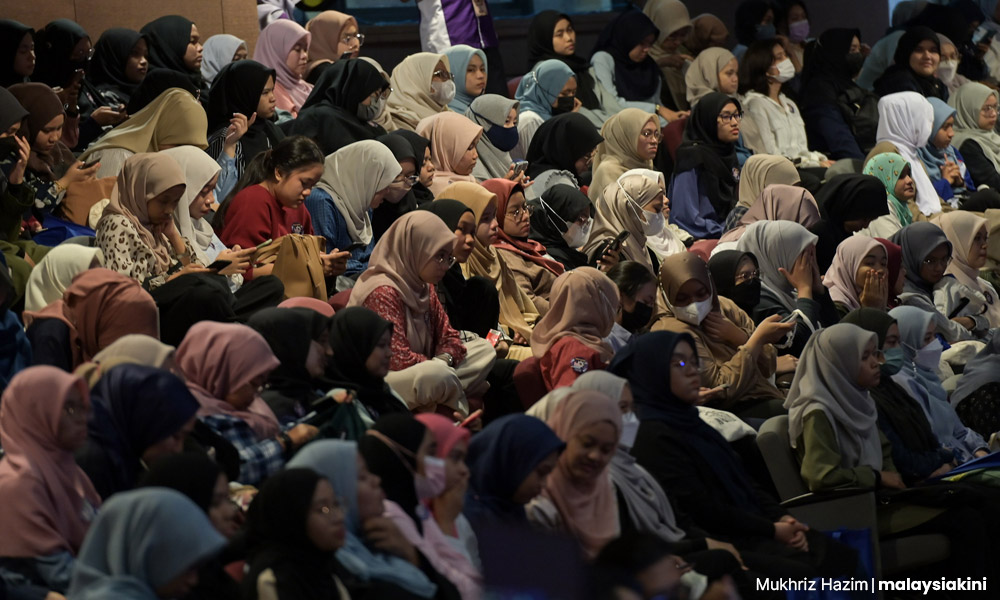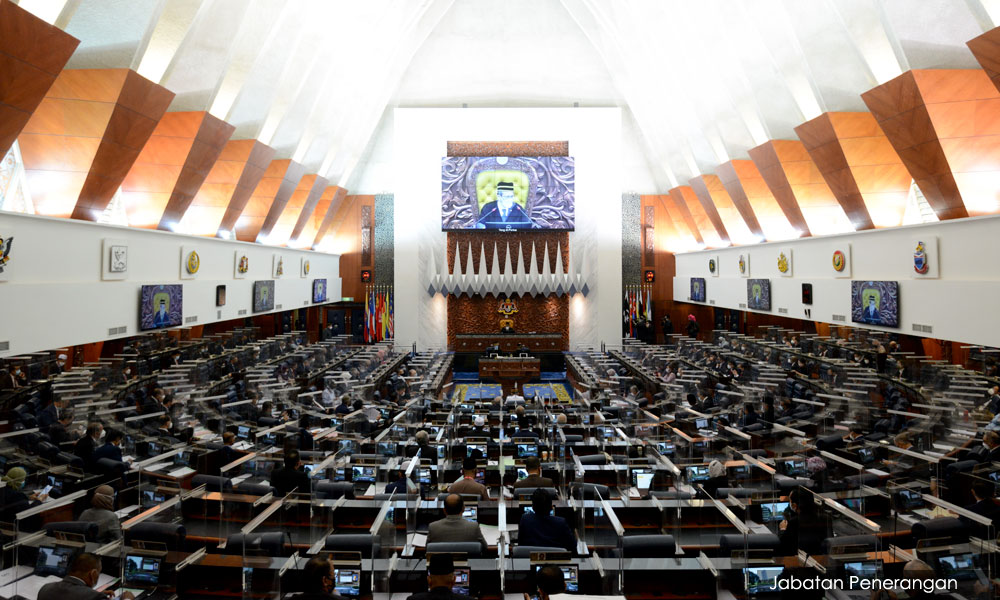Coincidentally with the first opinion piece effort to open up Pandora’s Box on Article 153 of the Federal Constitution and to correct its shortcomings and abuses, the latest racial and Article 153 controversy has blown up.
This comes after what has been touted as a bold decision in higher education by the cabinet to guarantee all students who score 10As and above in the SPM examination a place in matriculation colleges.
According to Prime Minister Anwar Ibrahim: “This decision ensures that all top SPM students have the best opportunities to pursue higher education.
“This initiative was also for ensuring the bumiputera quota system and the principle of meritocracy are maintained for the benefit of all students.
"All of our children, when I say children, I mean Malay, Chinese, Indian, Dayak, Kadazan and all without exception.
"If our children scored 10As and above or obtained excellent results, without any exception, they will get a place. This is an assurance from the government.
“As such, the issue of race should no longer arise."
Baby steps
Although praiseworthy, this initiative is just a baby step in the reform needed in the application of Article 153.
In fact, the issue of race in policy making and implementation in education and elsewhere in national policies can be said to be far from over as evidenced by the many readers in the social media’s report on the cabinet decision.

It is noteworthy too that the prime minister himself has recently called attention to the educational underperformance of our 15-year-olds in the Programme for International Student Assessment (Pisa).
In the latest assessment, Malaysia recorded the biggest drop in score compared to Indonesia, Thailand and Vietnam - a position that the prime minister has decried as a situation that “we can’t be in denial”.
Most Malaysians are fully aware of the discrimination, bias and other shortcomings in the nation's education system where Article 153 has been most in force among the different sectors of the economy and society in which the provision has been applied since 1957.
Few are aware of the balancing provisions and of their importance in safeguarding the legitimate interests of the minority communities and the reasonable proportion principles built into the Constitution to ensure fairness.
Does this latest wrinkle in the bumiputera quota system successfully meet the “reasonable proportion” and “protection of the legitimate interests of the non-Malays” principles enunciated by the Reid Commission and enshrined, unchanged and intact in the Constitution?

For starters, 90 percent of places reserved exclusively for bumiputera in educational establishments, scholarships, training or any other special facilities funded by taxpayers from all Malaysians today is not a reasonable or rational proportion.
It may have been justified perhaps even for a short period after the end of the New Economic Policy (NEP).
But today? Those in denial of the urgency of questioning and reforming existing racially skewed quotas can be seen to be akin to the emperor parading around in his finery.
Tweaking Article 153 to revitalise Malaysia
How the objectives of reasonableness, transparency and accountability in the fair and just operationalisation of Article 153 can be achieved clearly requires the urgent attention not only of politicians but also all stakeholders working for a better Malaysia.
Here is a short list to which others may wish to provide enhancements in the application of Article 153 in addition to what has been proposed by the cabinet:
● Public and private sector housing price discounts and quotas
● Public university staffing positions including the appointment of senior officials such as vice-chancellors
● Student admission quotas at all levels
● Budgetary allocation to educational institutions
● Scholarship awards
● Mara ethnic preference policies
● Civil service intake and promotion to higher levels
● Licences, tenders and contracts in the public sector, government-linked companies and other special-purpose government agencies
Hopefully, suggestions can be forthcoming from stake players, such as GLCs, manufacturers, small and medium enterprises, housing developers and other business groups.
This is in addition to the various sectors of the civil service that have borne the brunt of the burden of implementing unreasonable and excessive preference requirements.
Besides distinct provisions specifying that the conditions for doing business and the nation’s governance should protect the legitimate interests of all, it is important to emphasise that the scope of Article 153 is limited by Article 136, which requires that civil servants be treated impartially regardless of race.
Dealing with opposition to Article 153 reform
Objections to dismantling NEP benefits and Article 153 excesses can be expected from some politicians, policymakers from the civil service, and other members of the socio-political and business elite who have been its principal beneficiaries.
It is an undeniable fact that those who have benefited not only desire but will work to ensure that their children and grandchildren can continue to monopolise the gains from institutionalised preference policies.
Huge losses to the nation’s economy and finances have stemmed from the non-transparent allocations in contracts awarded under the aegis of the NEP and Article 153. They will continue unabated without correction.
The response to ethnocentric and opportunistic-driven opposition to any review of Article 153 should not be silence, collaboration, resignation or impotence.
It should be the calm presentation of fact-based feedback, and data on the indisputable impact and outcomes from citizens, businesses, academia, the media and other stakeholders.

What is needed for policy change and reform calls for perseverance and stamina in knocking on the closed doors of policymakers and the bureaucracy.
Quite apart from the legal, moral and other arguments against the excessive, unjustifiable and exploitative preference of any kind, the reality is that its unchanged ethnic character is the main stumbling block to a revitalised Malaysia.
The sooner it is replaced by a race-neutral, needs-based, merit-oriented and area and region-specific policy mix (this should include the prioritisation of Sabah and Sarawak legitimate rights), the quicker the nation can become more resilient and united as it faces a more daunting future. - Mkini
LIM TECK GHEE is an economic historian and analyst with extensive experience in the field of bumiputera equity ownership.
The views expressed here are those of the author/contributor and do not necessarily represent the views of MMKtT.




No comments:
Post a Comment
Note: Only a member of this blog may post a comment.